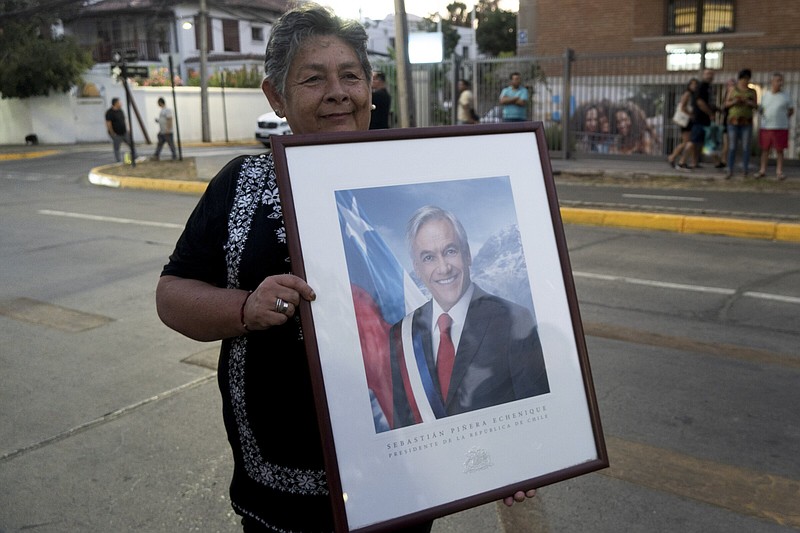VINA DEL MAR, Chile -- Sebastian Pinera, the two-time former president of Chile who faced social upheaval followed by a pandemic in his second term, died Tuesday in a helicopter crash. He was 74.
Chile Interior Minister Carolina Toha confirmed the death of the former president.
Chilean prosecutors released more details Wednesday about the death of Pinera, saying he drowned after the helicopter he was piloting crashed into a lake.
Pinera died after a flight over Lake Ranco, more than 560 miles south of Santiago. The crash remains under investigation, but bad weather conditions were reported in the area.
He was an experienced helicopter pilot, former Defense Minister Alberto Espina said Tuesday night, and was flying the aircraft in which three other people were also traveling. Of the four occupants, the other three passengers survived the crash.
Chilean President Gabriel Boric honored Pinera in a speech Tuesday afternoon as a leader "seeking the best for his country," highlighting his management of the pandemic and other emergencies. "He was a democrat from the very first moment," Boric said.
Pinera was the owner of the fifth-largest fortune in Chile, estimated at some $3 billion. He worked as an academic in several universities for almost 20 years and as a consultant for the Inter-American Development Bank and the World Bank. When he closed his time in office, he had created an estimated 1 million jobs.
As a businessman in the 1970s through the 1990s, he worked in a variety of industries, including real estate. He held shares in major airlines, telecommunication, real estate and electricity companies. He also created one of the largest credit card companies in the country.
In 2009, he handed over the management of his businesses to others.
He entered politics representing the center-right, which was the civilian support of the military regime. However, when he served as an independent senator, he voted against the extension of dictator Augusto Pinochet.
He ran three times for president of Chile. In 2006, he lost to socialist Michelle Bachelet; then in 2010 he defeated former President Eduardo Frei and was elected in 2010. Four years later, in 2018, he won a second four-year term after defeating a leftist independent.
Pinera gained a spotlight for his administration's rescue of trapped Chilean miners in 2010, and his governance during the coronavirus pandemic, when Chile was placed among the top five countries for vaccination rates for the illness.
His legacy is marred by violent police repression in October 2019 against protesters who were demonstrating against the country's education, health and pension systems dating to the country's 1973-1990 military dictatorship. A United Nations investigation alleged that police used force "improperly and indiscriminately" injured protesters, and that government mistreatment of detainees amounted to torture.
The social unrest ultimately led to two attempts to update the constitution that was inherited from the military government, but both have failed.
Tuesday night, the former president's body was taken to Valdivia for an autopsy. Boric received Pinera's body Wednesday morning at Santiago airport, accompanied by his widow, Cecilia Morel, and other relatives.
The public began paying their last respects to Pinera Wednesday night, with a state funeral to be held Friday.
Information for this article was contributed by Oatricia Luna, Megan Janetsky and Eva Vergara of The Associated Press.
